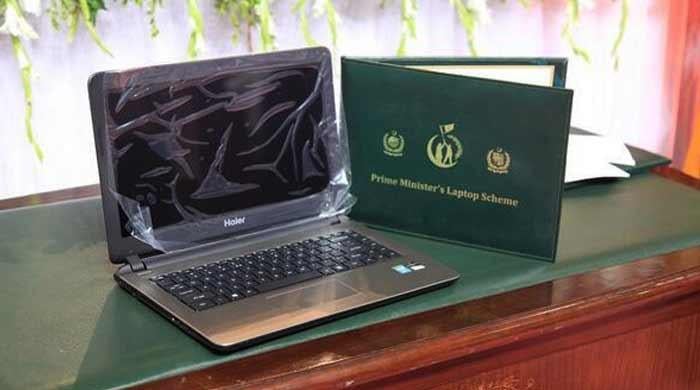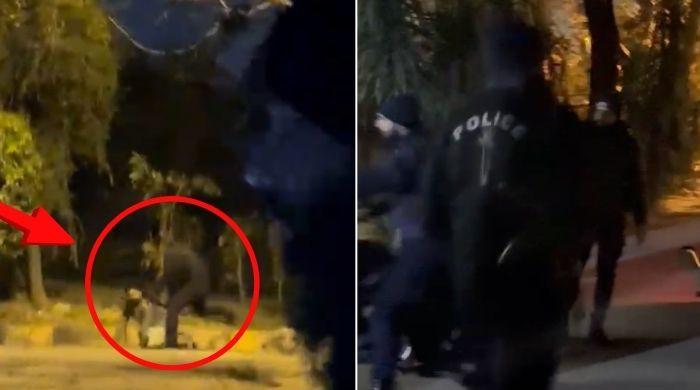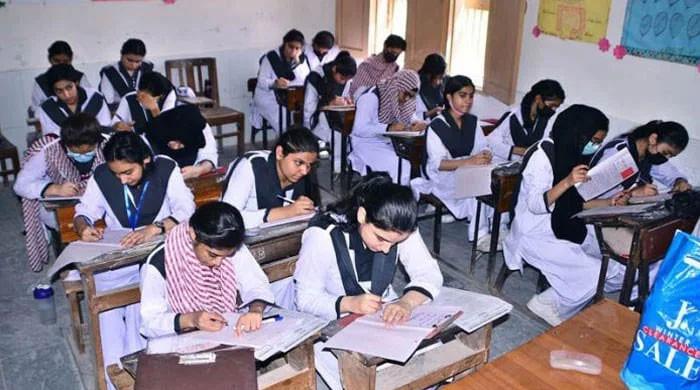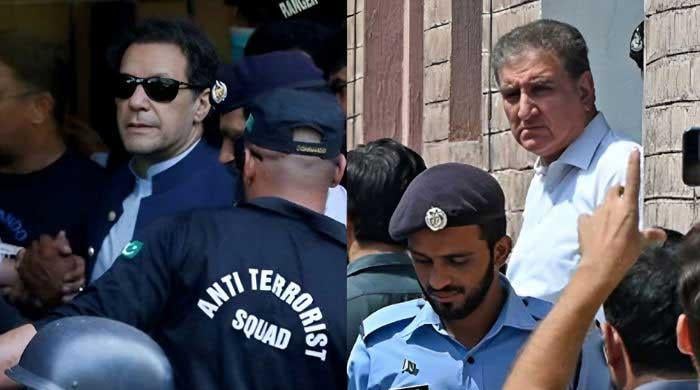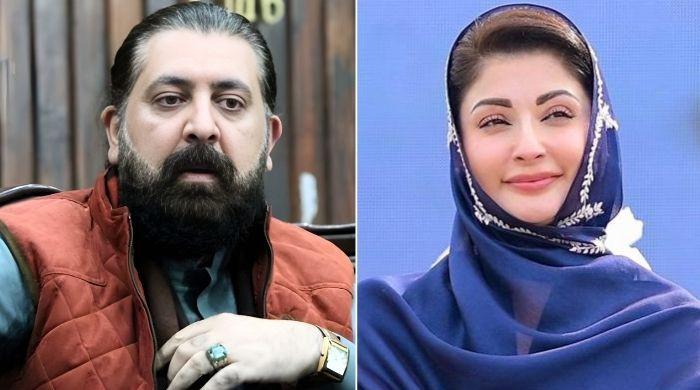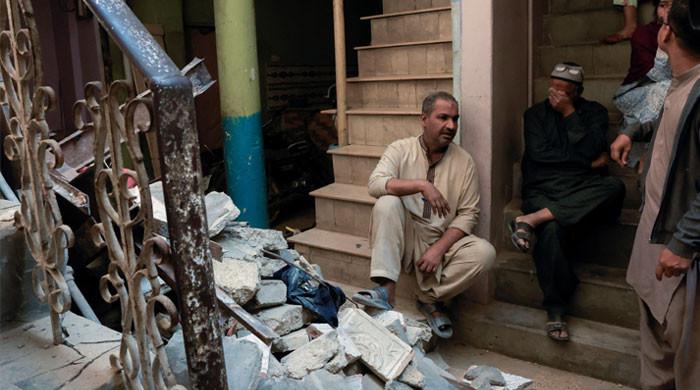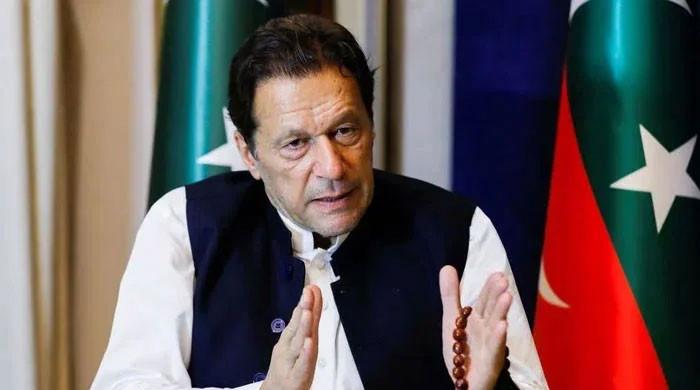Developing South Asian female talent, leadership in world of creativity
Ten women – 5 from UK and 5 from Pakistan – collaborated to curate, produce a digital literature festival programme
February 07, 2022
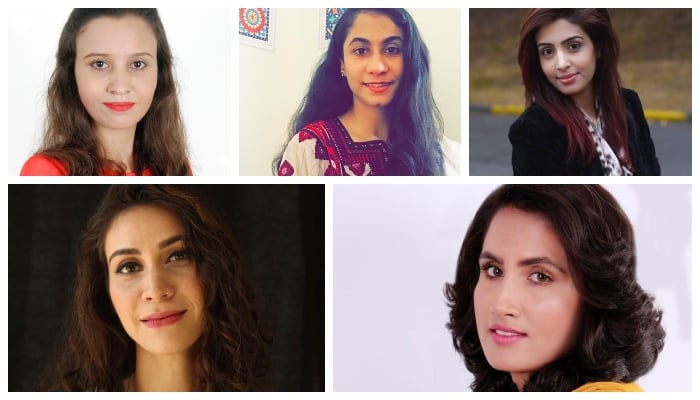
When it comes to creativity, there is no shortage of talent in South Asia. There are people in this part of the world who are brimming with ideas that not only have the potential to defy conventional wisdom but also bring about a change in society.
People with creative minds do not have to say out loud that they have special modes of thinking. They just do what comes to them naturally: break the rules, go beyond the existing paradigms, and think anew.
Unfortunately, however, there is a scarcity of creative platforms available to South Asian communities that could help people — especially women — channelise their creativity.
Sensing the lack of opportunities available to South Asian women belonging to creative fields, United Kingdom’s Bradford Literature Festival and Pakistan’s Adab Festival initiated a ground-breaking international collaboration to develop female talent and leadership in the arts and culture.
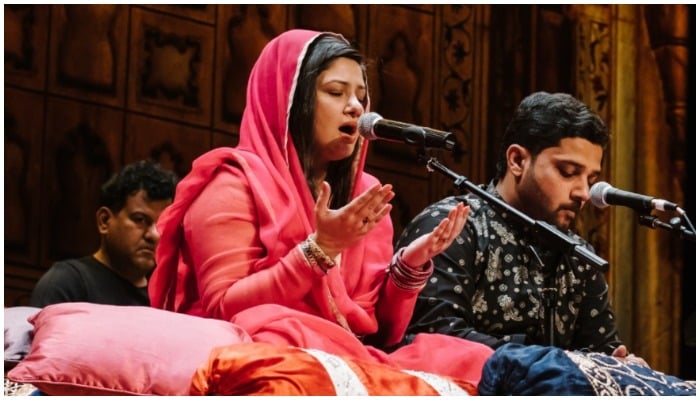
A project — which was based on a digital exchange and development programme — brought together women from diverse and disadvantaged communities in Bradford and across Pakistan.
Titled “Producers of the Future: From Keighley to Karachi”, the programme was the brainchild of Adab Festival’s Director Ameena Saiyid, who hails from Karachi, and BLF’s Director Syima Aslam, who is of British-Pakistani heritage.
Opportunity for under-represented South Asian women
The programme was focused on the cultural skills development of South Asian women from socioeconomically disadvantaged backgrounds in Bradford and Pakistan, who face gender-based, social, cultural, technological, and economic barriers to careers in the arts and culture sector.
According to its initiators, the much-needed opportunity tackled the under-representation of South Asian women in the talent pipeline and positions of leadership in the British creative sector, while also providing a wonderful opportunity for the brave, pioneering, and struggling women artists and writers of Pakistan.
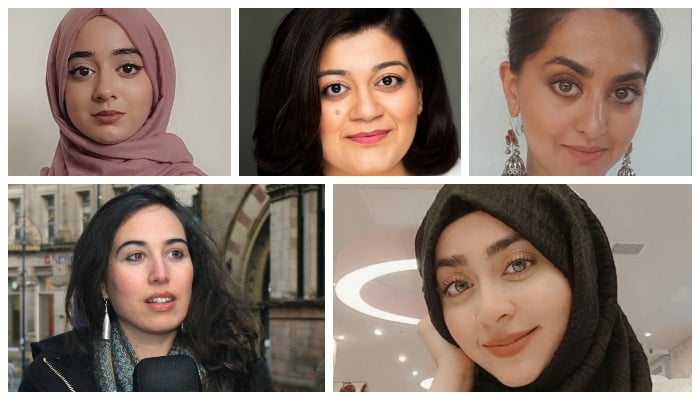
This project was supported by the British Council Digital Collaboration Fund, which supports the UK and Overseas Cultural Partnership to develop digitally innovative ways of collaborating.
A group of ten women – five from the Bradford District and five from Pakistan – worked collaboratively over six months to curate and produce a digital literature festival programme. Participants received a monthly bursary, mentoring, specialised training and funding opportunities to attend arts and cultural events (digitally or live).
As explained by Saiyid, the participants attended online training and mentoring sessions, lectures, and workshops on how to organise a festival or creative artistic events.
Developing the confidence, practical skills and industry connections needed to underpin the continued development of their creative careers, this international group of women have been equipped with the skills they need to design and deliver cultural activity within and informed by their own communities and experiences long after the end of this project.
Women moving ahead as pioneers
Speaking about the project, Ameena Saiyid said that “From Keighley to Karachi” was of great benefit to Pakistani female talent in the creative sector.
“Women in the creative sector in Pakistan — particularly in rural areas — face enormous challenges such as gender discrimination, segregation, exclusion from the public space, lack of mainstreaming, exposure and empowerment, and an insistence on male dependence,” she said.
“However, despite women treading a painful course, with every small victory snatched, with great effort and courage, from the teeth of hardened male prejudices, women are not discouraged and are moving ahead as pioneers whilst smoothing the way for those waiting in the wings.”
On the other hand, Syima Aslam was of the opinion that highlighting the value and variety of careers in the creative sector is a key priority for Bradford Literature Festival.
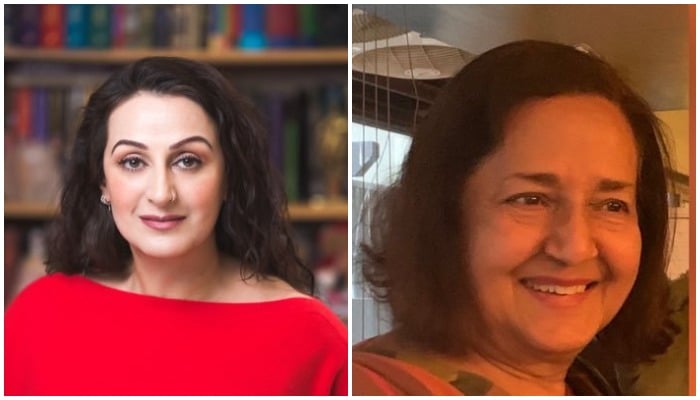
“It has been an honour to lead this talent development project in partnership with Adab Festival. The women who took part were recruited across the boundaries of class and geography and their training will enrich their own communities,” she said.
“We’re incredibly proud of the work curated by this inspiring cohort, and the marginalised conversations they have pulled into the mainstream. This innovative project has successfully highlighted not only the impact of the arts in connecting communities but also the dynamic potential of creative careers and the importance of developing a sustainable talent pipeline."
‘More skilful, inspired, and confident’
Shedding light on how she benefitted from the programme, Nazhat Shakir — who was one of the participants in the project — said when she applied to “Producers of the Future,” she did not have much experience with the field of creativity and did not know how to put her ideas to use.
“After a six-month journey with the BLF and Adab Festival, I emerged as a more skilful, inspired, and confident person, ready to play my role in the creative field,” said Shakir, who hails from Chitral.
“As compared to other parts of Pakistan, creative fields are not given much importance in Chitral. And that is the reason it is hard to find many people from my state in creative fields, particularly producers,” she said.
Shakir added that she applied to the programme so that she could highlight issues and contributions of Chitrali women to the world of creativity.
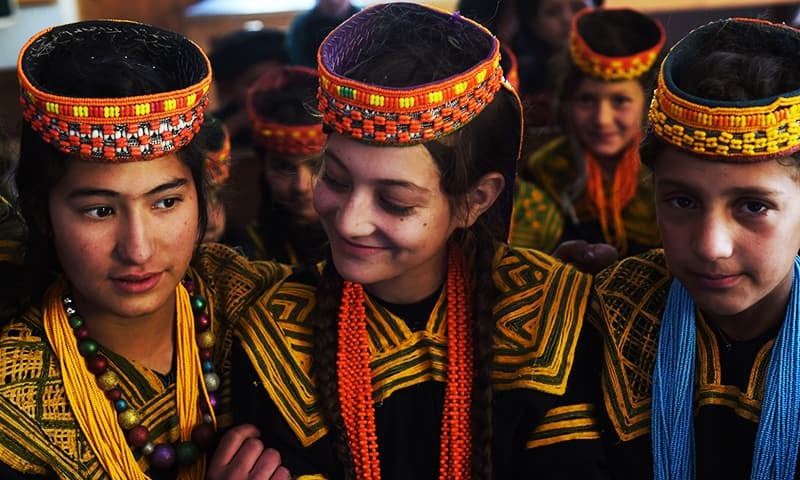
“We have a rich culture here, but many aspects of it are unexplored and undocumented, so I wanted to tell the world about the history of Chitral, our historical songs, and stories of people so that we could become a part of the global village,” she said.
She further said that it is a producer’s job to preserve a culture and ideas for the next generation.
“And to this end, I wanted to play my part as a producer.”
Humanising Lyari
One of the participants in the programme was Dur Bibi, a young woman who completed a master’s degree in defence and strategic studies and had no background in creative arts.
Speaking to Geo.tv, Bibi revealed that she suffered the nerves and the doubts that often plague those who dare to step outside of their comfort zones and try something different.
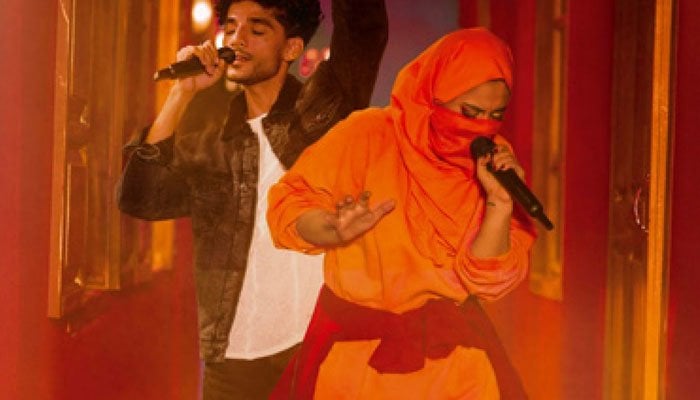
“I am a Baloch and I live in Karachi’s Lyari neighbourhood,” she said. “Unfortunately, when it comes to Baloch people, the media has portrayed us to be uneducated people, while Lyari is always associated with violence and gang-wars. As a result, people fail to humanise us.”
She said that despite having no background in creative fields, she decided to apply to the programme to try her luck. The next thing she knew was an email in her inbox, informing her that she was short-listed for an interview.
“I am well-educated, but since English is my third language, I cannot speak it fluently. And while this dampened my spirits, my interviewers — both from Pakistan and Britain — put me at ease and I nailed it,” she recalled.
Bibi — who co-produced the event “Breaking Musical Boundaries,” about rappers from her neighbourhood — said when was informed that she had made it through the final selection process, she couldn’t believe it.
“I kept thinking why would they select someone like me who has no background in a creative field, could not properly speak in English, and came from a marginalised area,” she said. “But when I formally started the programme, one of my trainers, Irna Qureshi, told me that I was selected because the panel saw that I had leadership skills, and I could serve as an inspiration to the women of Lyari.”
“I wanted to bring out the true face of Lyari through the event,” she said. “And I think I have successfully done that!”
Establishing connections
Wajiha Naqvi —a singer, cultural anthropologist, and creative professional from Karachi — applied to be a part of the project because she felt the need to expand her skillset and explore new avenues within the world of creative arts.
“The programme attracted me because it would teach participants how to put together an online digital festival by equipping them with the required tools, knowledge, and skills,” she said. “In the future, I would like to put together my own festival online too, so [I saw this as a great opportunity].”
Naqvi also found “From Keighley to Karachi” useful because working with BLF and Adab Festival and the people associated with it rendered a lot of credibility to the project.
“The project also gave me a chance to connect with creative female producers from Pakistan and the UK. It was very interesting to interact with women from diverse backgrounds with similar goals, i.e. to promote arts and culture,” she said.
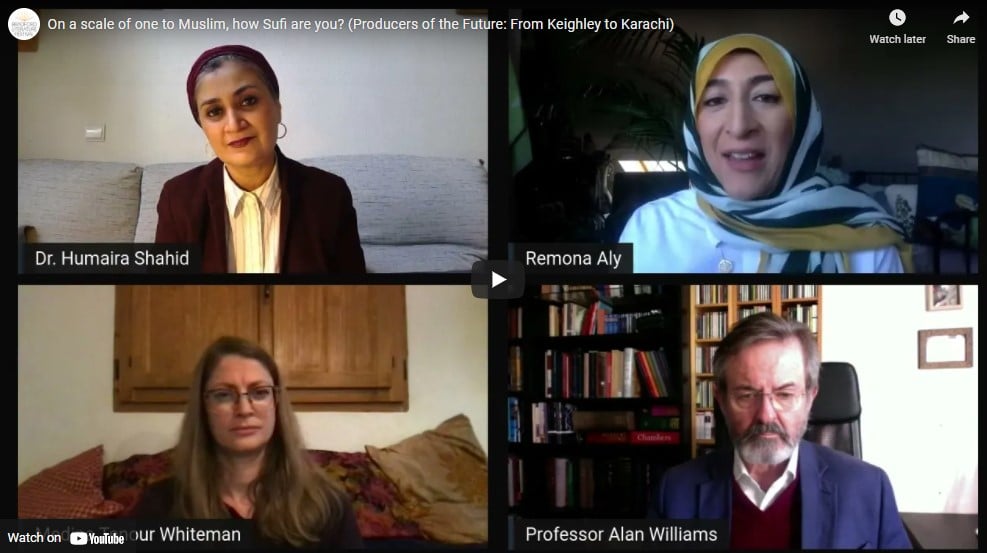
“It was a six-month online journey throughout which we designed and executed a strain of online events. The training sessions were entirely virtual, so communicating with people in different time zones yet making it work was an enlightening experience.”
Naqvi, who worked on two events, said that finding panellists, convincing them to speak, and designing the topic for a panel discussion required a lot of coordination and enthusiasm.
“All the participants motivated and inspired each other throughout the programme. And I am already talking about collaborating with some of the women in Bradford.”
‘Self-reliance’
For Ishrat Shaheen, who is an architect and project manager from the Bhakkar District of Punjab, being selected to participate in “From Keighley to Karach” was a unique experience.
“It was a great opportunity for me to hone my skills as a producer because the programme not only allowed participants to exercise their creative liberty but it also provided them with the required funds to execute the events in the best way possible,” said Shaheen, who produced an online event called the “Memory of Places” along with a Bradford student Halima.
The event featured writers who explored places of their childhood and the impact that leaving those places behind had on their adult lives.
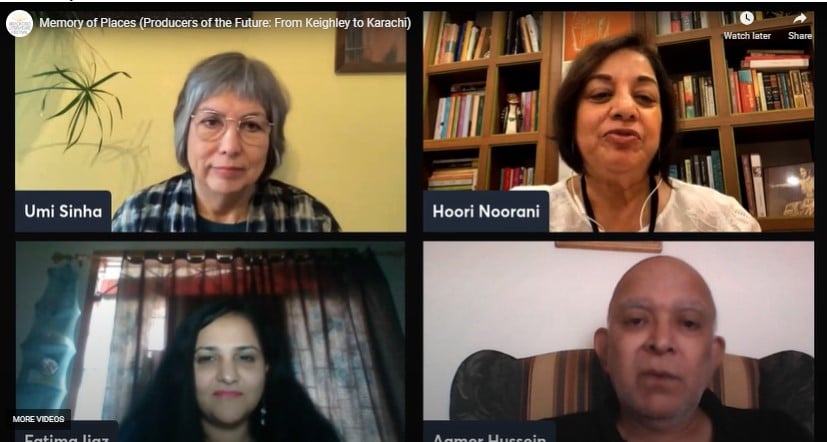
“The event was based on migration, which I have personally experienced in my life, so it was of particular interest to me,” she said. “In Pakistan, many people do not wish to be associated with the creative and art industry because of a lack of monetary benefits. Also, there’s a dearth of academies where people could go to polish their creative skills.”
She said that the training enabled her to be self-reliant as she can now produce events on her own too.
“Although the programme was virtual, it helped us learn a lot from the mentors as well as the participants in Bradford. All five of us from Pakistan, who participated in this programme, have emerged successful and now we will be able to work independently,” she enthused.
The digital events
The participants produced a total of five events, including “Where are all the white voices?” — a panel discussion that highlights the absurdities and dehumanisation inherent in contemporary discussions on race and representation by flipping the gaze, presenting a ‘diversity panel’ in a world where it is white people who are the historically marginalised.
“How do we talk about loss and grief?” which, as the name suggests, is a holistic discussion about loss and grief in a post-pandemic world.
“On a scale of one to Muslim, how Sufi are you?” a discussion on how Sufism is often used to promote a “progressive” version of Islam, particularly in the West.
“Breaking Musical Boundaries,” an online event that introduced two ground-breaking Pakistani rap artists, both of whom showcase lyrics in Balochi and Urdu.
And last but not least, “Memory of Places.”





